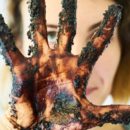Contamination OCD – Long Shower Exposures
Long shower times? Just a quick announcement… I’m pleased to announce that with our recent office renovations, we now have a spa-like therapeutic shower room that is perfect for individuals with contamination OCD who have excessively long shower times. This room is ideal for those with contamination OCD who wish to work on shower-based response prevention. For individuals with contamination OCD who take really long showers, we are now able to provide office-based interventions for reducing your long shower times. We’ve had great success with reducing our patients long shower times from multiple hours to a mere 10-15 minutes. Reduce Long Shower Times to Short OCD Shower Times We do this first by developing shower-based response prevention guidelines and modeling non-OCD based shower behavior in-session. We essentially use a shower script to help individuals identify normal shower routines (which,...
Read MoreVomit Phobia – Fear of Vomiting (Emetophobia)
Flu season will be quickly upon us and with it comes an unfortunate increase in the likelihood of experiencing fevers, coughs, runny noses, vomiting, and the like. Although no one enjoys being sick, this time of year poses particular challenges for individuals suffering from “vomit phobia”, or emetophobia, the fear of throwing up. The fear of vomiting can affect individuals of all ages. It sometimes emerges in childhood and, if untreated, may follow a relatively chronic course. However, it can also develop well into adulthood, sometimes taking root after a negative health experience (e.g., after getting food poisoning or after experiencing an episode of severe or uncontrolled vomiting). Vomit Phobia in Children and Teens Consequences associated with the fear of throwing up can be extreme. In children, vomit phobia can lead to school refusal and avoidance. Academic performance may...
Read MoreFear of Saliva Swallowing & Choking: Treatment & Symptoms (OCD)
Question: I have sensorimotor OCD, and I’m suffering from conscious swallowing. My main fear is that I’ll choke or swallow my own saliva whenever I’m speaking or singing. Any tips for how to tackle this fear via exposure and response prevention (ERP)? Great question. Consistent with general exposure and response prevention (ERP) principles, your exposures need to address your specific feared outcomes. Feared outcomes can vary greatly for individuals with the same presenting problem. I discuss this idea in a different context here: feared outcomes in OCD. For people with a fear of swallowing or drinking saliva, there are several possibilities. Fear of Potential Embarrassment: Social Anxiety If you are afraid of potential embarrassment due to coughing or choking while speaking, your symptoms might actually reflect underlying social anxiety (rather than somatosensory OCD). However, it’s also possible for social...
Read MoreOCD & Contamination: Washing & Cleaning Compulsions/Rituals
OCD: Common Compulsions In my last post about OCD, I discussed reasons why people do rituals. This time, I’ll identify specific rituals that are common in obsessive-compulsive disorder (OCD) characterized by a fear of germs, contamination, diseases, and other health-related ills. OCD: Hand-washing Rituals/Compulsions Hand-washing is a very common ritual and typically involves prolonged and frequent hand-washing behaviors. These washing behaviors may involve a particular sequence, order, or rhythm. Some individuals count while washing or wash in multiples of particular numbers. If these washes are interrupted, the individual may feel the need to repeat the entire sequence to make sure that the wash has been performed “properly.” Although people with OCD may think that their washing rituals are primarily for hygienic reasons, the true function of washing rituals is to reduce feelings of distress, anxiety, doubt, and vulnerability. The...
Read MoreOCD & Contamination: Reasons Why People Do Rituals/Compulsions
In my last post, I identified several idiosyncratic feared outcomes in OCD that are associated with contamination/health-related obsessive-compulsive disorder (OCD). Obsessions are intrusive, recurrent, and distressing thoughts, impulses, or images related to these feared outcomes. Today, I’ll discuss the function of compulsions. Why do people with OCD do rituals? Compulsions, or rituals, are the other main feature of OCD. These physical and/or mental behaviors reduce the anxiety brought on by obsessions and reflect one’s attempt to avoid, reduce, or prevent certain feared outcomes from occurring. Ask someone with a fear of contamination, disease, illness, or germs why they ritualize; and they will likely tell you that rituals serve as a means to destroy, neutralize, or escape from potential pathogens. As a consequence, rituals common to health-related OCD often incorporate washing, cleaning, disinfecting, and sanitizing behaviors. Excessively long OCD-driven shower...
Read More







